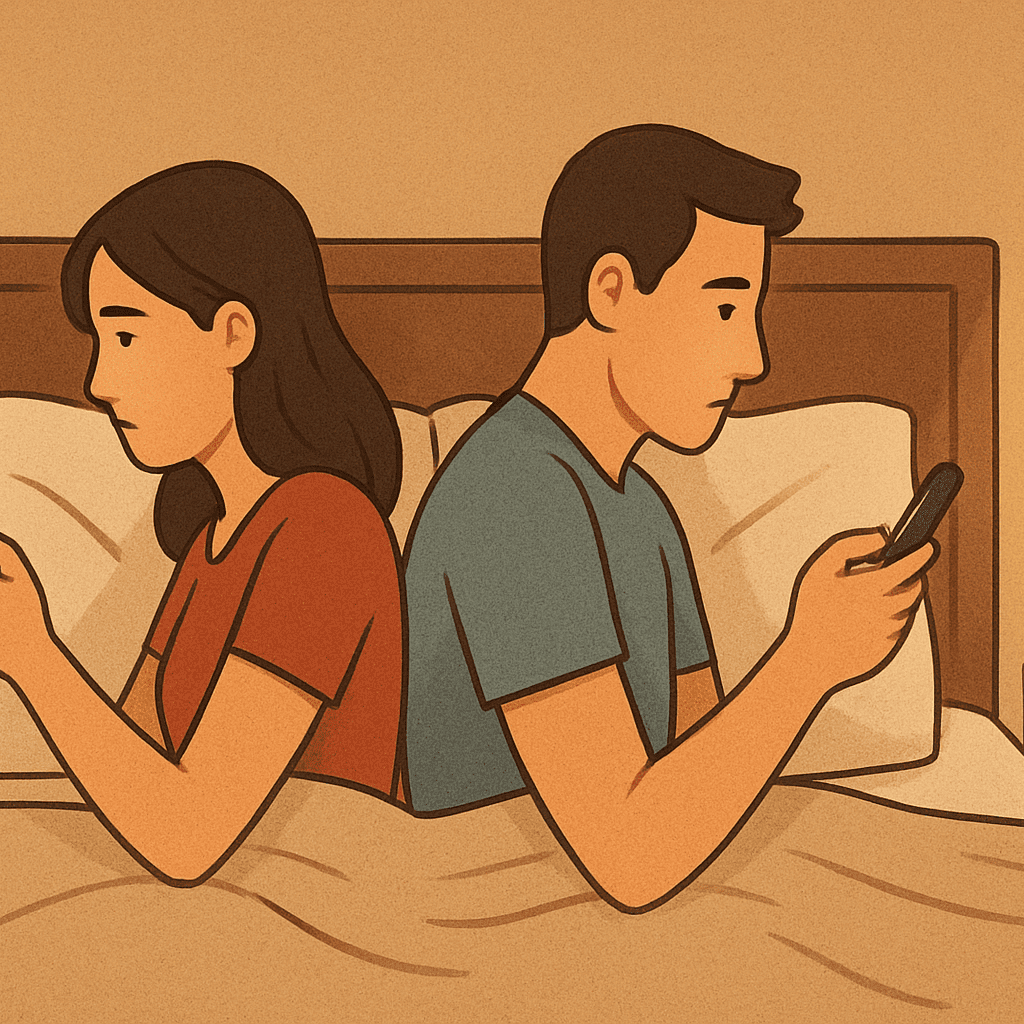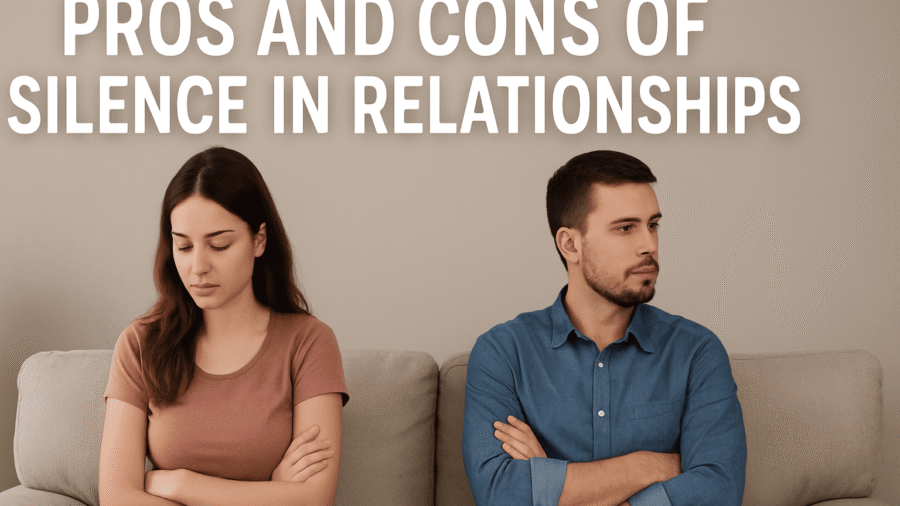There is a language that speaks louder than words. It echoes in the pauses, in the unsent texts, in the tension between glances. That language is “silence”. And in relationships, it can either be a gentle balm or a sharp blade.
Silence in relationships can feel like standing in a quiet room filled with emotions that have not found their way to speech. Sometimes it brings peace. Other times, it reveals disconnection. But whether it hurts or mends has nothing to do with silence, but with why it is there and what comes after.
What then is the layered truth of silence in relationships, the good it can do, the damage and how we may harness it well. Let’s get into it.
The Healing Side of Silence in Relationships
1. A Space for Reflection
Silence gives breathing room in emotionally charged moments. When used intentionally and mindfully, it allows both partners to step back, reflect, and process before responding.
According to the Harvard Gazette, choosing silence during conflict does not always mean avoidance. Sometimes, it is a way to gain clarity, “a pause that lets us see ourselves more honestly, and respond more compassionately” (Heen, 2023).
2. Trust is Built in Comfortable Silence
Silence is a mutual comfort, not the absence of it, in emotionally safe relationships. It reflects a deep level of comfort where words are not always necessary to feel seen or safe.
A study published in Motivation and Emotion and cited by the New York Post found that couples who could enjoy “natural, mutual silence” were often more satisfied with their relationship than those who needed constant verbal reassurance (Sessa, 2025).
This kind of silence is sacred because it says, “I am with you, even in quiet.”

3. Nonverbal Presence as Emotional Support
In moments of grief, anxiety or emotional overwhelm, silence can be the most compassionate response. When a loved one is hurting, it is not always advice they need. Sometimes, the most healing gesture is a quiet presence.
In the blog post The Healing Power of Listening Without Judgement, PsycheShare beautifully reminds us that “being present without pressure” allows others to feel safe enough to open up when they are ready.
The Harmful Side of Silence in Relationships
1. The Silent Treatment as Emotional Punishment
Not all silence is golden. When silence serves as punishment, manipulation or control, it turns into what psychologists refer to as stonewalling, an activity that’s most tightly linked with relational collapse.
Seltzer (2024) in Psychology Today explains that when a partner “withdraws into silence with the intention of avoiding resolution or inflicting pain,” it signals deep emotional distance and wears down trust over time.
This silence is not peaceful; it is sharp, cold and mostly painful.
2. Emotional Suppression and Disconnection
Sometimes silence hides that which words are meant to reveal. When couples consistently avoid hard conversations and confrontations by sidestepping, silence becomes a mask for fear, resentment or disengagement.
According to a peer-reviewed article by Weinstein et al., (2024) published in Springer Nature, silence driven by fear of conflict or rejection is linked to lower relationship satisfaction and emotional burnout.
This is where silence transitions from serene to suffocating from a pause to a pattern of emotional suppression.

How to Know Whether Silence Is Healthy or Unhealthy
Signs of Healthy Silence:
- Feels peaceful and emotionally safe
- Leaves room for reflection or self-soothing
- Comes with emotional availability afterward
- Is recognised or made known (“I need a moment to think”)
Signs of Unhealthy Silence:
- Feels cold, punishing or confusing
- Is used to avoid, ignore or control
- Becomes a consistent pattern of avoiding communication
- Creates fear, anger or relationship uncertainty
If you find yourself in the quiet and feel closer perhaps it is healthy. But if the silence builds walls, it might be time to listen to what is missing.
Silence, Self and Solitude
In some seasons, silence may not come from a partner but from life itself. When communication feels distant or confusing, we may find ourselves alone with our thoughts.
In PsycheShare’s article, Walking Alone: My Journey of Leaving Home to a Foreign Land, a writer shares how loneliness and unspoken emotions shaped her path toward inner strength. At times, silence is not rejection but a journey to into emotional maturity.
Whether relational or personal, silence acts as a mirror, it reflects both where we are and what we are ready to face.
What to Do When Silence Feels Heavy
If silence in your relationship has become more unsettling than soothing, consider:
- Starting gently: “I have noticed we have not been talking as much as we used to. Is everything okay?”
- Naming the need: “I want us to talk, even if it is uncomfortable.”
- Listening openly: Honour the pause and the perspective it offers.
- Seeking help: Relationship counseling can help decode silence and rebuild healthy dialogue.
In moments when words feel too hard to find, let kindness fill the quiet.
Silence Is Not the Enemy, Disconnection Is
Silence is not always something to fix. Some moments, it is something to understand. In relationships, silence can be sacred or harmful. It can hold space for healing or conceal growing distance.
The difference lies in the intention.
When silence is paired with love, reflection and presence, it becomes a gentle pause. But when it is driven by fear, control or neglect, it becomes a fracture.
REFERENCES
Adjei, C. S. (2025). Walking alone: My journey of leaving home to a foreign land [Personal story]. PsycheShare. https://psycheshare.com/walking-alone-my-journey-of-leaving-home-to-a-foreign-land/
Bedjabeng, C. A. (2025, July 21). The healing power of listening without judgement. PsycheShare. https://psycheshare.com/the-healing-power-of-listening-without-judgement/
Heen, S. (2023, September 11). Next spat with your partner, try silence. Harvard Gazette. https://news.harvard.edu/gazette/story/2023/09/fight-argue-partner-silence-difficult-conversations-sheila-heen-conflict-negotiation-relationship-advice/
Seltzer, L. F. (2024, January 24). Why silence in a relationship isn’t golden. Psychology Today. https://www.psychologytoday.com/us/blog/evolution-of-the-self/202401/silence-as-communication-isnt-always-golden
Sessa, A. (2025, February 21). If you can do this in your relationship, it’s stronger than you think, surprising new study finds. New York Post. https://nypost.com/2025/02/21/lifestyle/if-you-can-do-this-in-your-relationship-its-stronger-than-you-think-surprising-new-study-finds/
Weinstein, N., Nguyen, T. V., Adams, M., & Knee, C. R. (2024). Intimate sounds of silence: its motives and consequences in romantic relationships. Motivation and Emotion, 48(3), 295-320.



Add a Comment